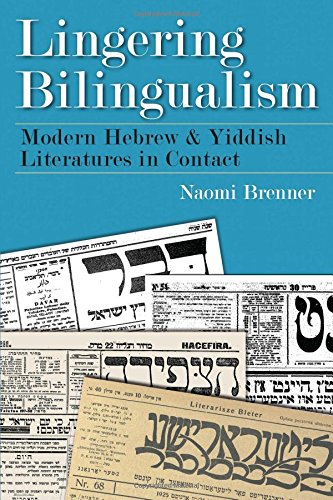Product desciption
Lingering Bilingualism Modern Hebrew And Yiddish Literatures In Contact Mul Naomi Brenner by Naomi Brenner 9780815634232, 0815634234 instant download after payment.
At the beginning of the twentieth century, ambitious young writers flocked from
Jewish towns and villages to cultural centers like Warsaw, Odessa, and Vilna
to seek their fortunes. These writers, typically proficient in both Hebrew and
Yiddish, gathered in literary salons and cafés to read, declaim, discuss, and
ponder the present and future of Jewish culture. However, in the years before
and after World War I, writers and readers increasingly immigrated to Western
Europe, the Americas, and Palestine, transforming the multilingualism that had
defined Jewish literary culture in Eastern Europe. By 1950, Hebrew was ensconced
as the language and literature of the young state of Israel, and Yiddish
was scattered throughout postwar Jewish communities in Europe and North and
South America.
Lingering Bilingualism examines these early twentieth-century transformations
of Jewish life and culture through the lens of modern Hebrew–Yiddish
bilingualism. Exploring a series of encounters between Hebrew and Yiddish
writers and texts, Brenner demonstrates how modern Hebrew and Yiddish
literatures shifted from an established bilingualism to a dynamic translingualism
in response to radical changes in Jewish ideology, geography, and culture.
She analyzes how these literatures and their writers, translators, and critics
intersected in places like Warsaw, Berlin, Tel Aviv, and New York―and
imagined new paradigms for cultural production in Jewish languages. Her
aim is neither to idealize the Hebrew–Yiddish bilingualism that once defined
East European Jewish culture nor to recount the “language war” that challenged
it. Rather, Lingering Bilingualism argues that continued Hebrew–
Yiddish literary contact has been critical to the development of each literature,
cultivating linguistic and literary experimentation and innovation.


